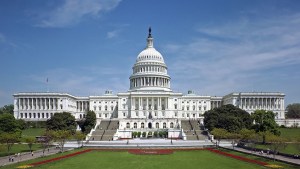Lenten Campaign 2025
This content is free of charge, as are all our articles.
Support us with a donation that is tax-deductible and enable us to continue to reach millions of readers.
Thanks in part to government easing of restrictions on taking abortion pills at home, the number of pregnancy terminations in England and Wales for 2020 is significantly higher than the previous year.
The Guardian reported that 209,917 abortions were reported in 2020, up from 207,384 in 2019. Women aged 30 to 34 accounted for the largest increase in abortion rates by age — with a rise from 16.5 per 1,000 in 2010 to 21.9 in 2020.
Abortion rates for those aged under 18, however, have declined over the past 10 years, from 16.5 per 1,000 women in 2010 to 6.9 per 1,000 in 2020, said the newspaper.
The statistics, published by the Department of Health and Social Care on June 10, also said that 3,083 abortions took place in 2020 on grounds of disability, including:
- 693 abortions of babies with Down syndrome, an increase of 5.64% over 2019.
- 35 abortions where the baby had cleft lip or cleft palate, 105.88% over 2019 figures.
In addition, 65 “selective termination” procedures were performed, where there were twins, triplets or more, and parents did not want that many children.
Commenting on the news, Right To Life UK pointed out that a leaked “urgent email” sent by a regional chief midwife at National Health Service England and NHS Improvement warned of the “escalating risks” of “DIY” home abortions. It said that several women had to go to hospital emergency rooms for incidents including significant pain and bleeding, ruptured ectopic pregnancies, and resuscitation for major hemorrhage. The email leak also revealed that police opened a murder investigation into the death of a baby who they believe was born alive despite her mother taking “DIY” home abortion pills.
In March 2020, the UK and Welsh governments approved the home use of the abortifacient mifepristone. Women would then be able to self-administer the drug after an online consultation with a physician.
Clare Murphy, the chief executive at the British Pregnancy Advisory Service, also attributed the rise to the COVID-19 pandemic.
“Faced with economic uncertainty, job insecurity, and needing to juggle home schooling and work, women and their partners have been making sometimes tough decisions when faced with an unplanned pregnancy,” Murphy said.
But a spokeswoman for Right To Life UK, Catherine Robinson, commented: “It is a national tragedy that 210,860 lives were lost to abortion in England and Wales last year. Every one of these abortions represents a failure of our society to protect the lives of babies in the womb and a failure to offer full support to women with unplanned pregnancies.”



